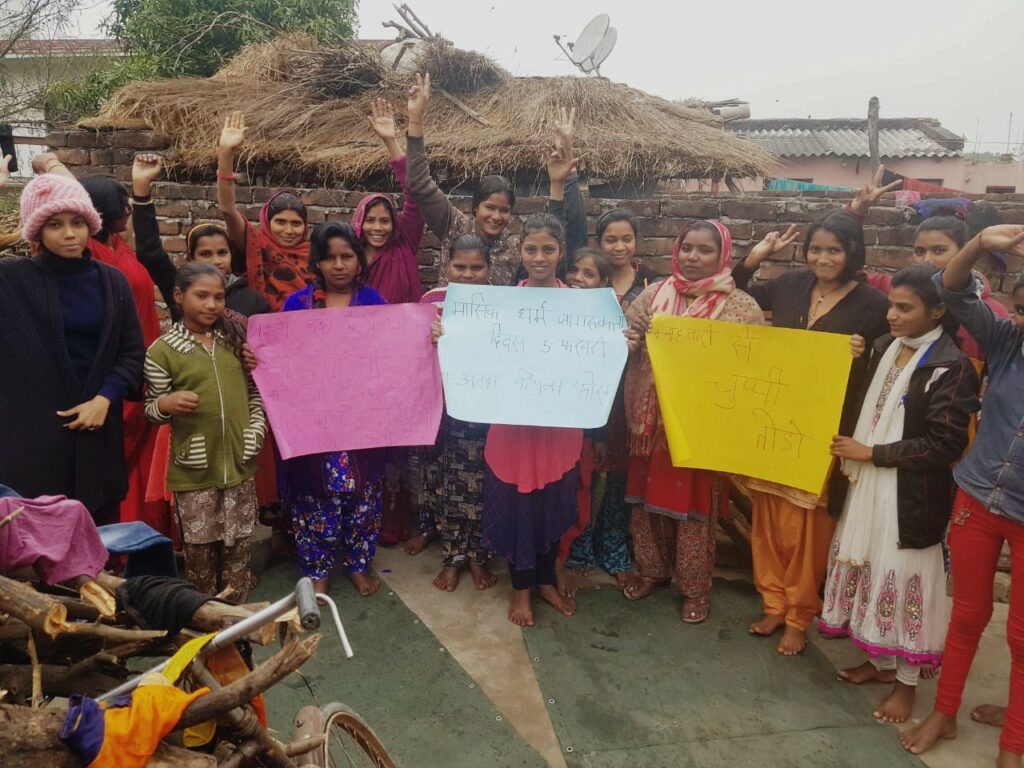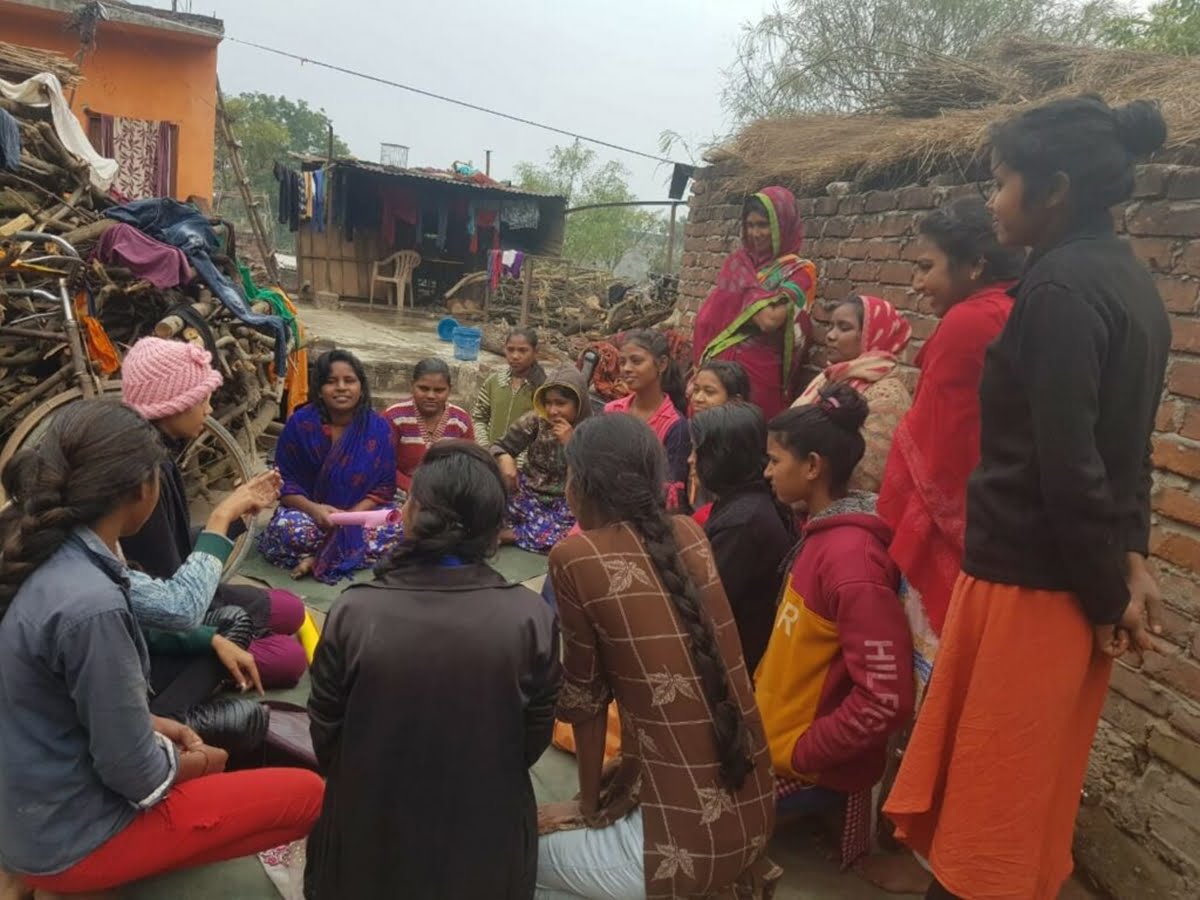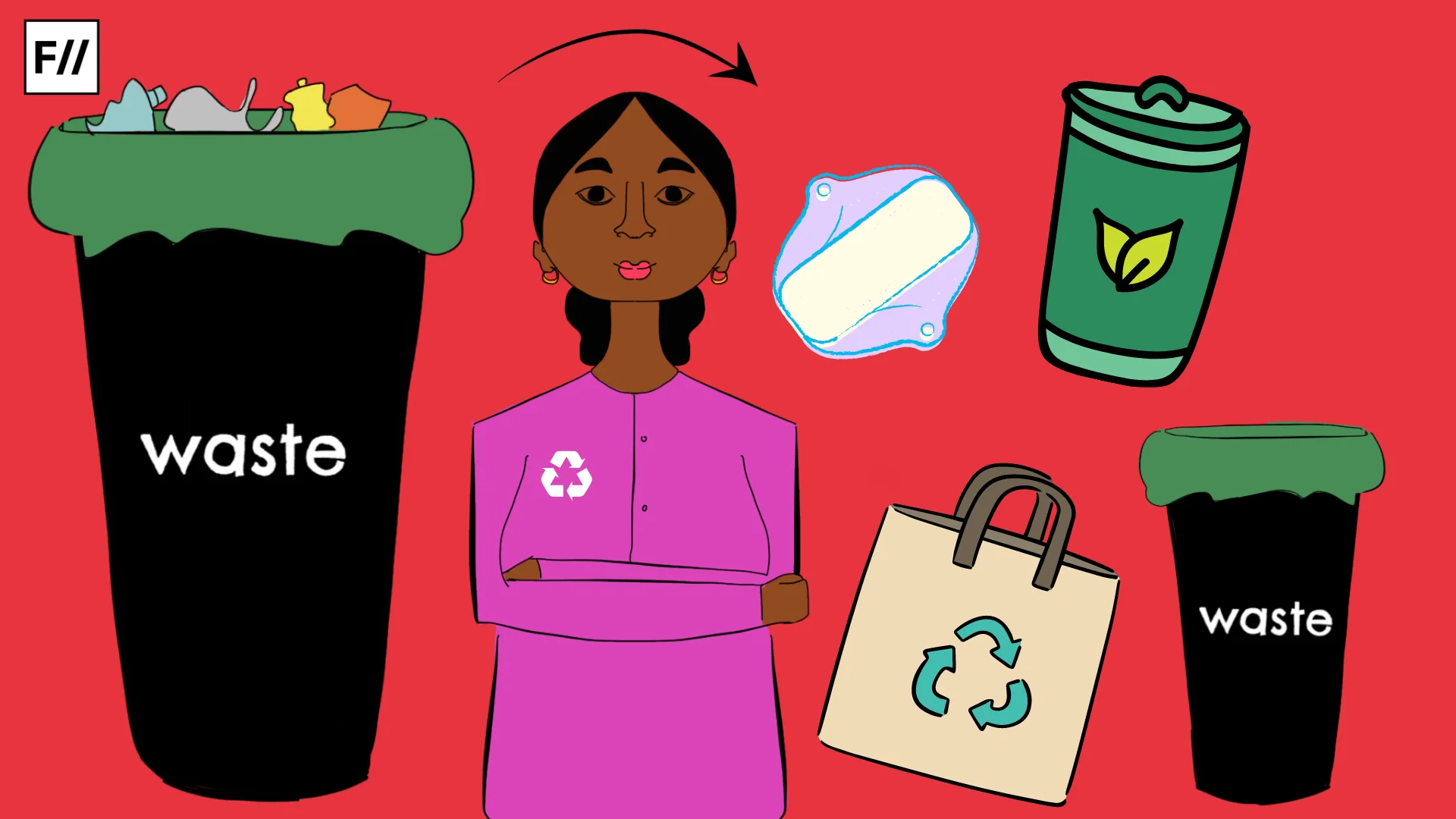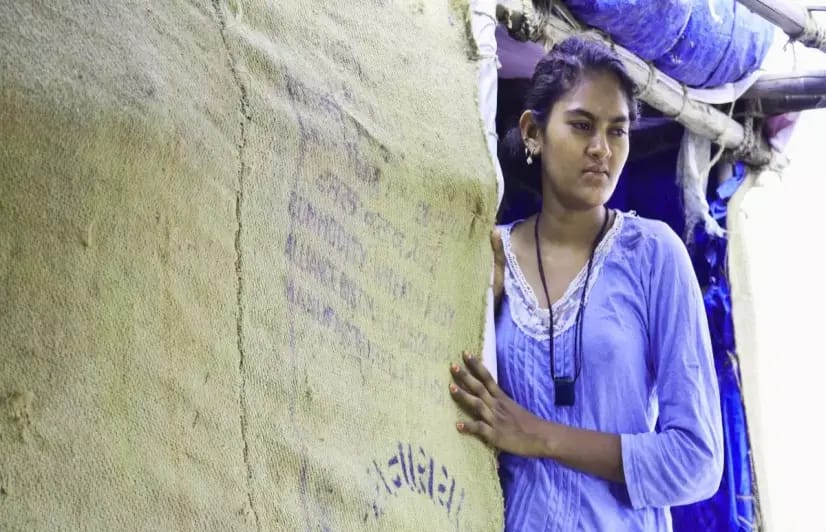Posted by Pooja Jain
“In the survey we conducted among 50 girls from the community, we were so heartened to see that most of them said that period blood was not impure. It was a very encouraging sign for us that there was one less myth that we had to burst.”
In a country where women are still waging a battle demanding period leave, wherein taboos around menstruation continue to thrive, rooted in conservative ideals, a bunch of young women are making change happen on ground. From her passive acceptance of the impurity of period blood as had been ingrained into her since puberty, Shruti Sonkar (20) has come a long way. Her Jagrik (Jagruk Nagrik) partner, Iqra Khalil (21), who had once religiously followed her family’s superstitious practices to shorten the number of days she got her periods for, has her own transformational journey to share.
Shruti and Iqra are two of the 196 Jabardast Jagriks with ComMutiny from Uttar Pradesh, have been involved with Awadh People’s Forum (APF) for the past two years. During this time, they learnt to question the myths and stereotypes about menstruation and actively seek and spread reproductive health awareness.
Also read: How Can Mainstream Media Use Inclusive Language To Cover Menstruation Sensitively
They are a part of ComMutiny and APF’s Social Action Project on menstrual hygiene management to be run in Paharganj, Uttar Pradesh. Starting December last year, they have been trying to engage a group of 50 girls (13-22 years) in the community. Though the initial response of the girls in the community was a mixture of shame, embarrassment and hesitation, the jagriks did not let this dampen their spirit.
From conducting sessions on the rooftops of the houses of the girls who were not allowed to go out and attend these meetings, to encouraging their mothers to join their sessions, Shruti and Iqra left no stone unturned to ensure that their efforts impacted the maximum number of girls possible.
From conducting sessions on the rooftops of the houses of the girls who were not allowed to go out and attend these meetings, to encouraging their mothers to join their sessions, Shruti and Iqra left no stone unturned to ensure that their efforts impacted the maximum number of girls possible.

Their engagement with the young girls and women revealed that menstrual waste management is the biggest challenge that they are facing. The girls said that they had to walk quite a distance to reach the dumpster outside their alleys to dispose off their used sanitary napkins wrapped in newspapers and polythene bags. Shruti shared an incident when a monkey snatched the bag from a girl as she was walking towards the dumpster and tore it to pieces. The girl felt embarrassed in the middle of the road with a group of boys standing nearby, watching the spectacle.
Girls who are not allowed to walk the distance to the dumpster, or those who don’t dare to because of the monkeys, have no option but to throw the used sanitary napkins in the open drains which results in problems like clogging and overflowing.
In an attempt to solve this problem, the jagriks are encouraging and upskilling the girls to write letters to the Gram Pradhan addressing the issue of disposal of used sanitary napkins.
Also read: The Biological Is Political: Menstruation, Maternity & Women’s Employment
Another issue that the girls in the community face is that a lot of them are anaemic due to lack of clean drinking water. According to the National Family Health Survey 2015-2016, 52.4% of women (aged 15-49) from rural households in Uttar Pradesh are anaemic. Typhoid is another common disease that often ails the girls in this community. According to the Ministry of Jal Shakti, only 9.12% of the total rural households in Uttar Pradesh have piped drinking water supply. Even if they do get piped supply, the families, largely dependent on selling fruit/vegetable for sustainance, cannot afford filters or water purifiers in their homes.
In the face of these challenges that are more often than not instances of institutions failing them, Shruti jokes about the time when the only cure a doctor she once visited could offer her for severe period pain and nausea was marriage. The pain will ease after you get married, she was told. “So, I have to get married now to get rid of this pain?” Shruti had joked then, but this a far deeper problem than we realise. When doctors, especially those who menstruate, believe that marriage is somehow a miraculous cure for debilitating period cramps, it is a horrifying testament of how often women are let down by institutions that should be helping them. This callousness and erasure of the everyday lived experiences of women and their bodies, be it in schools, hospitals or in the area of sanitation, only aggravates the sufferings of women that they are expected to shoulder silently.
Talking about the most inspiring moment of her journey, Iqra said, “Some girls were hesitant to come, while some were not allowed by their fathers or brothers. But we have realised that underneath the embarrassment and shame, these girls are curious to understand the functioning of their bodies better, it is just that they don’t have a safe space that enables them to do this. And their mothers realize this too and have been very encouraging and supportive of their daughters. These women do want their daughters to benefit from a safe space they themselves never had access to.”
Sharing their plan for the community, the jagriks said, “Girls here often resort to using cloth instead of a hygienic menstrual product. So, we will be training them to make cotton sanitary napkins at home. We want to guide them towards sanitary and safe menstrual practices.”

When asked how the systems can be more supportive of their needs, they said, “We want to engage the school duty bearers. Sexual and Reproductive Health Education begins at school, but school teachers tend to skip the chapters on reproductive health. Also, ASHA, ANMs and Anganwadi workers have told us that young girls rarely ever seek their assistance. We are coordinating with the workers in mobilising young girls and making them aware of the different government policies that they can avail of.”
Stories like that of Shruti and Iqra’s, is a testament of the positive impact that behavioural change can bring about especially when young leaders are aware of and actively engage with Youth Rights and Duties.
Pooja Jain is a Post-Graduate from Delhi University. Having majored in English Literature, and previously worked full-time as a Content Writer and Editor, she is now a Freelance Writer. An avid reader, she depends on the written word to understand the spaces she inhabits – public, private, and the in-between. She is a feminist and is always learning how to become a better ally for others demanding equality. She believes that kindness is the key and that it is as important to be kind to oneself as it is to others. She can be found on LinkedIn.
All images as shared by ComMutiny.
About the author(s)
ComMutiny stands for the first 'mutiny' within as a young person that comes from working in communities that are ‘different' from oneself. It is symbolic of the fact, the social and systemic transformation cannot happen without personal transformation, which is best facilitated by continuous exploration, reflection, and navigating self and social challenges in relation to the real world. ComMutiny - The Youth Collective is working towards building vibrant eco-systems and youth-centric spaces which we call the 5th Space.




